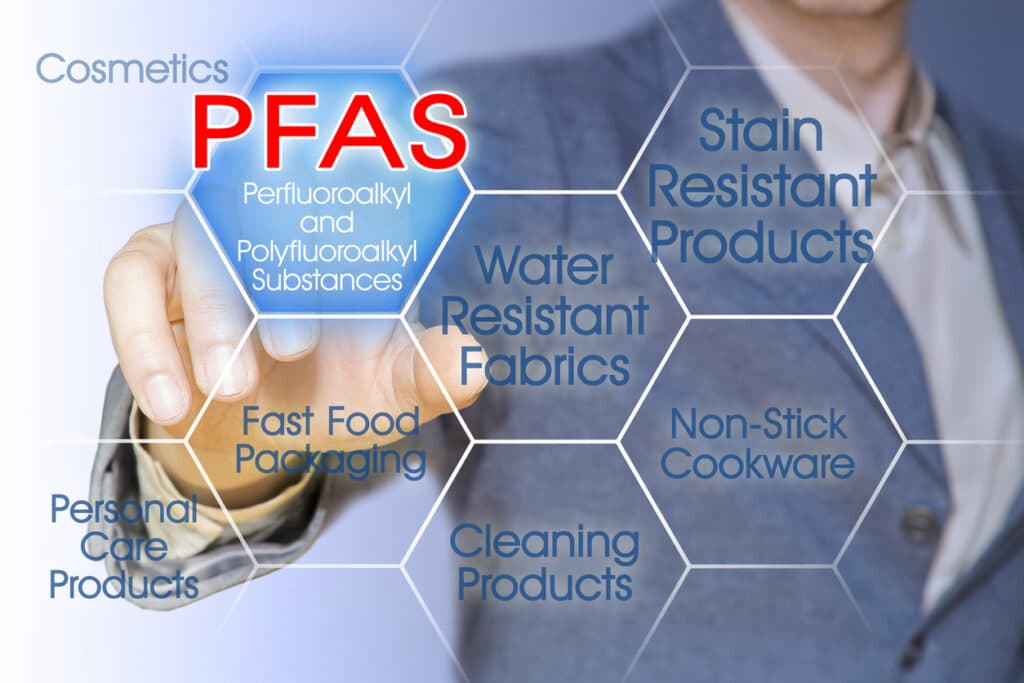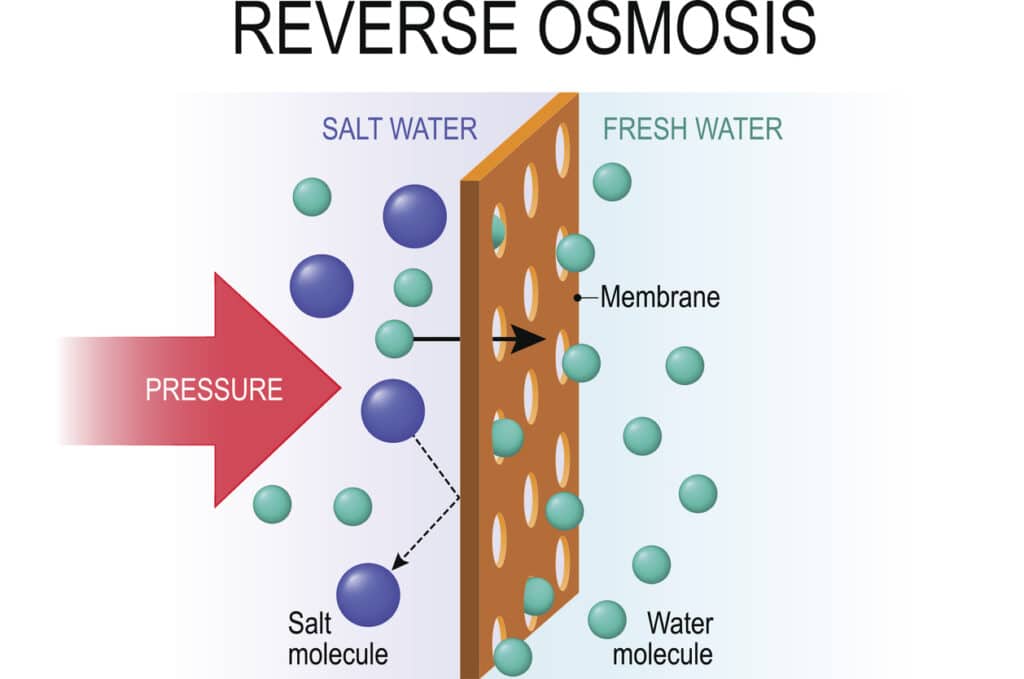Working at De Anza Water Conditioning for over two years, I cannot tell you how many times I have heard customers asking, “Will a water softener make my water salty?” or “How much salt would a softener add to my water?” Let us debunk those myths today.
To understand the role that salt plays in the softening process, let us delve into how a water softener works. Inside of a water softener, sits a resin bed covered with sodium ions. To remove the hardness minerals such as calcium and magnesium, they undergo a process known as ion exchange. When the resin bead grasps the minerals; a sodium ion is released to maintain a balance of electric charge on the bed therefore; leading to sodium being added to your household water. During the regeneration process, the softener will utilize sodium chloride to flush out the hardness minerals.
Exactly how much salt is added into your water, you ask? Well, that answer depends on the hardness of your incoming water as the harder your water is, the more salt is required to soften your water. During our free onsite water consultation, our sales representatives will test for your water hardness. Let’s use the average water hardness of Santa Clara to do our calculations. According to the Water Quality Association (WQA), after water is softened, there will be 30mg of sodium for every grain of hardness.
15 grains of gallon (gpg) x 30mg = 450mg in a gallon
450mg/128 oz = 3.51mg per oz
3.51mg x 8oz = 28.12mg of sodium in an 8oz cup
Such levels of sodium are considered low by The Food and Drug Administration. With most of the Bay Area’s incoming water deemed as very hard — greater than 10 grains per gallon (gpg), that would add approximately 20mg to 30mg of sodium to your household water. To put it into perspective, a 12oz can of soda contains 40mg of sodium, while orange juice has 25mg of sodium, and low-fat milk has 120mg. As mentioned by the Mayo Health Clinic in its Dietary Guidelines of 2015-2020, Americans are recommended to consume no more than 2,300 mg of sodium per day and 1,500 mg if you are 51 and older. Most Americans consume sodium through table salt and processed food therefore; the percentage of sodium in your drinking water is a negligible amount.
If you are wondering about the taste of your water, let me assure you that softening your water would not result in salty-tasting water. As for those who are concerned that the removal of these minerals would lead to calcium deficiency, we can always make up for this through our diet. Furthermore, since its invention, there have not been any known health issues associated with consuming softened water.
Our patented, non-electric Kinetico water softeners utilize 1 pound of salt and 13 gallons of water per regeneration — 1/3 less than any of our competitors. Furthermore, with its twin-tank set up, it will ensure that your home will receive soft water 24/7 — even during regeneration. If you are still feeling hesitant, our Kinetico K5 Drinking Water System will certainly put your concerns to rest. This seven-stage filtration system along with our VOC auxiliary filter will remove 99.999% of contaminants from your water, more than any other residential RO system on the market. With multiple optional filters to choose from, the K5 is customizable to your water needs, assuring you and your family the best-tasting, highest quality drinking water. Interested in learning more about our unique systems, sign up for a FREE onsite water consultation or call 408 371 5521 NOW!
Sources
Environmental Protection Agency, “Drinking Water Advisory: Consumer Acceptability Advice and Health Effects Analysis on Sodium,” 2003, https://www.epa.gov/sites/default/files/2014-09/documents/support_cc1_sodium_dwreport.pdf
Micah Dorfner, “Helpful ways you can reduce your sodium intake,” Mayo Clinic, 2016, https://newsnetwork.mayoclinic.org/discussion/helpful-ways-you-can-reduce-your-sodium-intake/#:~:text=The%202015%E2%80%932020%20Dietary%20Guidelines,approximately%202%2C300%20milligrams%20of%20sodium.



